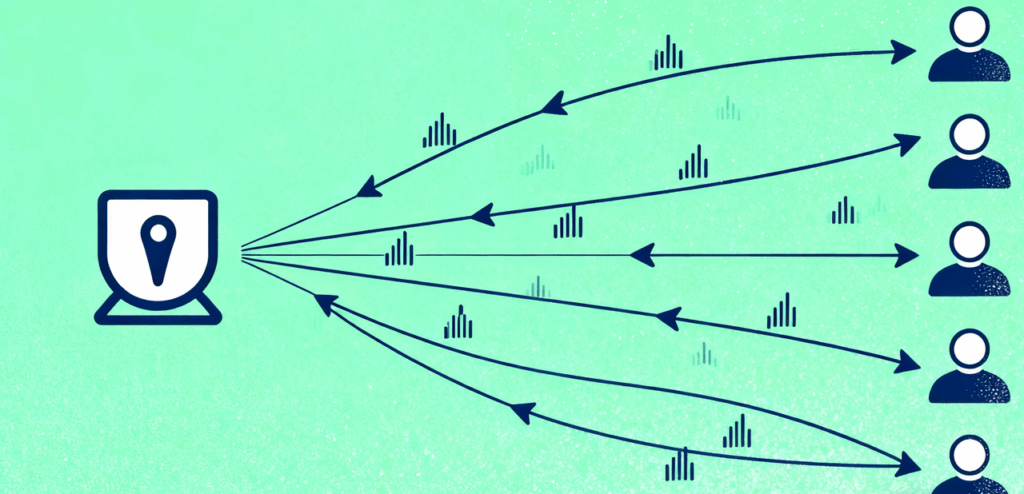In today’s digital landscape, privacy, security, and stable access are more important than ever. Whether you’re a developer, marketer, or e-commerce seller, using the right type of proxy can make a big difference in efficiency and safety. One of the most common and reliable options is the IPv4 proxy.
What Is an IPv4 Proxy?
An IPv4 proxy is a proxy server that uses an IPv4 address, which follows the traditional internet protocol format (for example, 192.168.1.1). It acts as an intermediary between your device and the internet. When you connect through an IPv4 proxy, websites see the proxy’s IP address instead of your real one.
This simple mechanism provides anonymity, bypasses access restrictions, and allows users to manage multiple online identities or regions without being detected.
For instance, a cross-border e-commerce seller can use an IPv4 proxy to log into multiple accounts safely without triggering IP conflicts. A reliable proxy service like IPFLY offers millions of clean IPv4 addresses across more than 190 countries, ensuring smooth and secure connections.
How IPv4 Proxies Work
When you use an IPv4 proxy, your device sends requests to the proxy server, which then forwards those requests to the target website. The website returns data to the proxy, which relays it back to you.
Here’s the basic process:
- You send a request (e.g., visiting a webpage).
- The proxy masks your real IP, replacing it with one from its pool of IPv4 addresses.
- The website responds to the proxy instead of directly to your device.
- The proxy forwards the response back to you.
This setup not only hides your real location but also helps you access websites that might be restricted in your region or limited by IP-based filters.
When using a provider like IPFLY, users benefit from intelligent IP rotation and high-speed connections that reduce the risk of being blocked or flagged.

Key Benefits of Using IPv4 Proxies
1. Enhanced Privacy and Security
IPv4 proxies help mask your real IP address, reducing the risk of data leaks and tracking. This is especially useful for individuals handling sensitive information or managing multiple accounts.
2. Access to Geo-Restricted Content
Many websites restrict access based on location. Using an IPv4 proxy allows you to appear as if you’re browsing from a different region, helping you test content, verify ads, or access local versions of sites.
3. Better Account Management
Social media managers and cross-border e-commerce sellers often manage several accounts. IPv4 proxies let them separate login environments, avoiding account linking or bans.
4. Improved Speed and Stability
Compared to IPv6 proxies, IPv4 proxies are more widely supported and often deliver faster, more consistent connections across global platforms.
For instance, IPFLY’s static residential IPv4 proxies are known for their stability and reliability, making them ideal for long-term business operations like ad management and market research.
IPv4 vs IPv6 Proxies
While both serve similar functions, IPv4 and IPv6 proxies have key differences:
| Feature | IPv4 Proxy | IPv6 Proxy |
| Address Format | 32-bit (e.g., 192.168.1.1) | 128-bit (e.g., 2001:0db8:85a3::8a2e:0370:7334) |
| Compatibility | Supported by nearly all websites | Limited compatibility on older platforms |
| Availability | Fewer IPs available (can be costly) | Virtually unlimited pool |
| Speed and Reliability | Highly stable | Can vary depending on website support |
In short, IPv4 proxies remain the most widely used due to their universal compatibility and strong stability, especially for business or automation tasks.
Common Use Cases of IPv4 Proxies
- Cross-Border E-Commerce – Sellers use proxies to simulate customer access from different countries or manage multiple store accounts safely.
- Web Scraping and Data Collection – Developers collect data at scale without getting IP-banned.
- Ad Verification – Marketers verify ad placements and view regional ad variations.
- SEO Monitoring – Analysts use proxies to check keyword rankings and search results from various locations.
- Social Media Management – Agencies handle multiple profiles without triggering platform restrictions.
Dynamic residential IPv4 proxies from IPFLY are particularly effective for these scenarios, as they rotate through real residential IPs, minimizing detection risks.
Choosing a Reliable IPv4 Proxy Provider
When selecting an IPv4 proxy, consider the following factors:
- IP Quality – Use a provider that offers clean, non-recycled IPs.
- Global Coverage – A wide geographic range allows more flexible operations.
- Speed and Uptime – Consistent performance ensures smooth automation and browsing.
- Rotation Options – Support for both static and dynamic IP modes is essential.
- Customer Support – Responsive service matters when managing business-critical tasks.
Providers like IPFLY combine all these advantages, offering over 90 million IPs from 190+ countries, high uptime, and flexible pricing plans starting as low as $1 for dynamic residential proxies.
Conclusion
IPv4 proxies remain the backbone of most online privacy and data operations. They help users hide real IPs, access restricted content, and maintain stable connections for business, testing, or automation.
To maximize efficiency and reliability, it’s crucial to pair your proxy setup with a trusted provider. With its self-built servers, intelligent IP screening, and global coverage, IPFLY delivers high-quality IPv4 proxies that suit everything from cross-border e-commerce to TikTok live streaming and SEO research.
If you’re looking for a secure, fast, and affordable way to enhance your online activities, an IPv4 proxy from IPFLY is a strong place to start.


